Events underscore humanities and social sciences’ key role in shaping brighter future
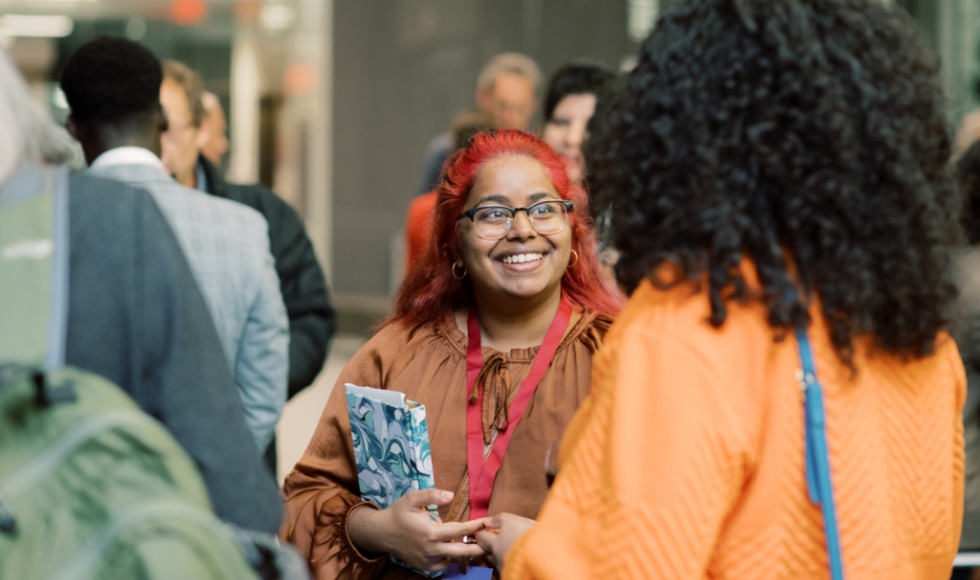
From social innovation to future-focused projects to interdisciplinary graduate work, several recent national gatherings show how vital a role the humanities and social sciences play in innovation and social change.
BY Nadia Lana, Faculty of Humanities
January 12, 2024
Several recent national events dedicated to envisioning a better future have underscored the vital role interdisciplinary work incorporating the humanities and social sciences play in innovation and social change.
At the 2023 Canadian Science Policy Conference in Ottawa, a lively panel discussion specifically addressed the critical role of humanities and social sciences in social innovation.
“When we’re talking about social innovation, we are talking about the kind of innovation that is needed in order to transform complex systems,” said Sandra Lapointe, a professor of philosophy in the Faculty of Humanities and the chair of the panel, which included participants from government, funding agencies and academia.
The valuable contributions of the social sciences, humanities and the arts (SSHA) to social change should not be underestimated, she pointed out.
“Global challenges, pandemics, homelessness: those are challenges that arise in the context of complexity. It’s a process that happens over an extended period of time, non-linear, iterative.”
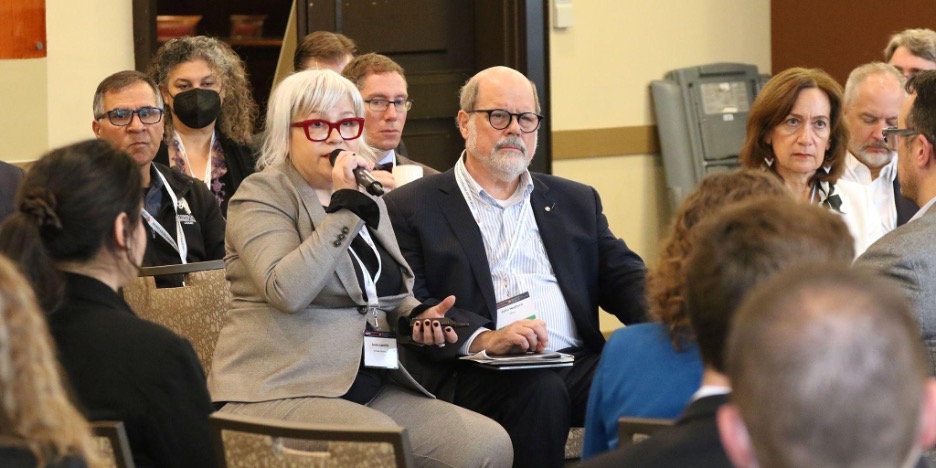
John Hepburn, CEO of Mitacs, a non-profit organization that runs training and research programs for social and industrial innovation, emphasized the importance of bringing in SSHA researchers long before problems happen.
“If you’re worried about health and well-being, you bring in people who understand what health and well-being means. Right from the very beginning,” he said.
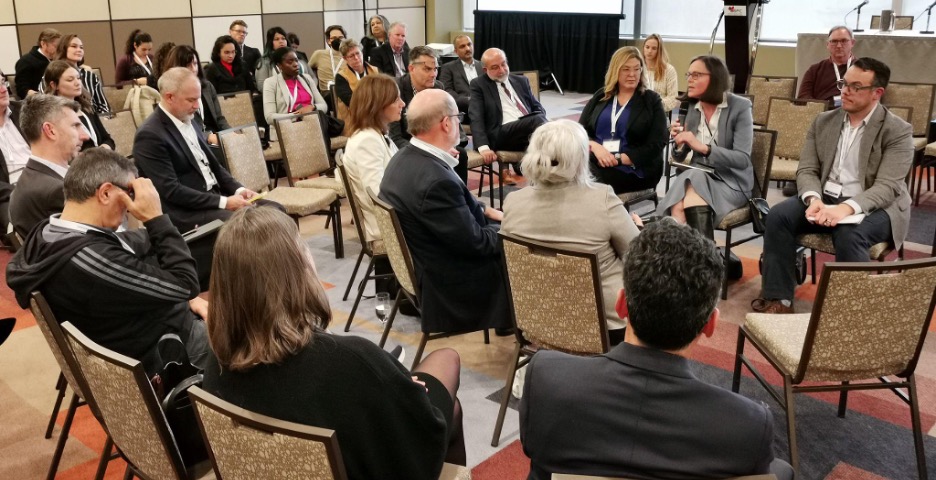
The outlook for future interdisciplinary collaborations also got a boost during the conference, with National Science Foundation (NSF) Director Sethuraman Panchanathan signing a Memorandum of Understanding between the foundation and SSHRC, providing a framework for future collaborations between U.S. and Canadian researchers.
The announcement came shortly after Panchanathan sat down with a group of emerging researchers at the 2023 Canadian Science Policy Conference, where he discussed the importance of social sciences and humanities research in the science policy space.
His advice for successful collaborations? “Focus on the common goal.”
Imagining 2080
Closer to campus, but still focusing on positive social change, the Future of Canada Project welcomed 150 delegates from across Canada to Hamilton for the Imagining 2080: Future of Canada Project Forum to consider the question: When you imagine Canada’s future, what do you see?
The Future of Canada Project, established in 2020 following a generous gift from former McMaster chancellor L. R. “Red” Wilson, supports interdisciplinary research projects that contribute to an understanding of Canada and its potential futures, tackling complex and nationally relevant issues.
As part of the three-day event’s discussions, McMaster researchers working on Future of Canada-funded projects participated in a symposium moderated by Don Abelson, academic director of the Wilson College of Leadership and Civic Engagement.
The group presented the results of their work, much of it going beyond traditional academic research and using interdisciplinary, community-focused initiatives to address broad issues, from Truth and Reconciliation to social isolation in aging populations.
Briana Palmer, a professor in McMaster’s School of the Arts, presented “Echoes from this land: Visioning Revisiting Truth and Reconciliation,” a project aiming to increase public awareness of the 94 calls to action from the Truth and Reconciliation Commission of Canada through collaborative works of art between Indigenous and non-Indigenous artists.
The project team includes artists and researchers from the Thunderbird Sisters Collective, Queen’s University, University of Regina, University of Waterloo, and Thompson Rivers University.
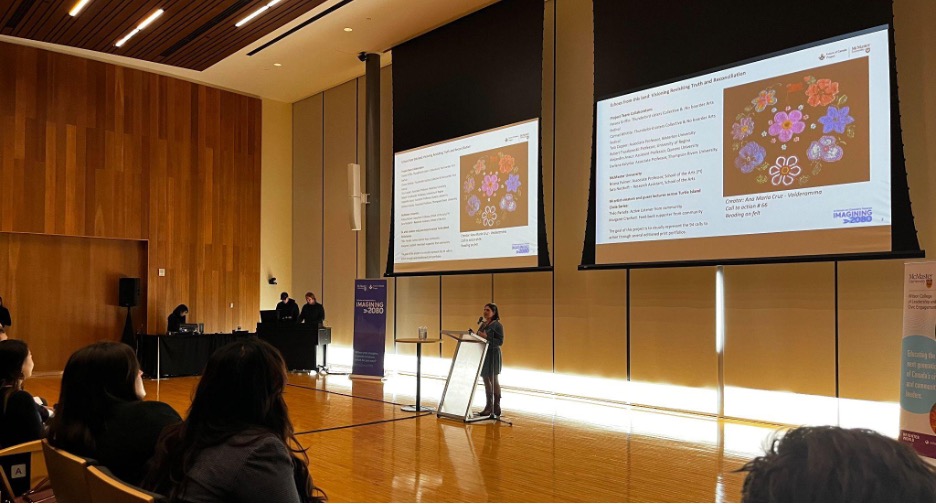
Victor Kuperman, a professor in Linguistics and Languages at McMaster, presented the outcomes of an intergenerational project, “Bringing hope and well-being to community-dwelling older Ontarians in the pandemic world through creative writing and digital literacy learning.”
A collaboration between humanities, business, social sciences, and health sciences researchers, as well as Hamilton Public Library, this project connects older adults and McMaster students to exchange knowledge and create collaborative digital storytelling outputs.
One core goal of the project was to reach socially isolated older adults in Ontario with no access to digital tools, like video conferencing software.
“Our principle was, they place a phone call to our team, and from there we would be able to give them the assistance, and if needed, the device, to participate,” Kuperman said.
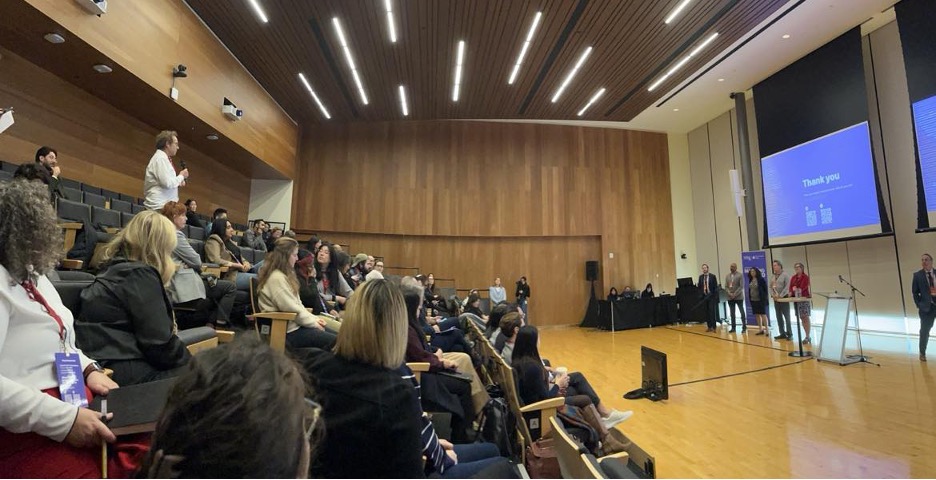
Interdisciplinary graduate work
Looking ahead, future researchers are also benefiting from an emphasis on interdisciplinary work, with two new graduate courses being offered in Winter 2024 that incorporate science, liberal arts and social change.
Narratives of Science, taught by Alexander Hall, an assistant professor in science communication and a science historian, explores how society understands and interacts with new scientific knowledge and ideas.
Leaders As Thinkers: What does good leadership look like? is the inaugural graduate seminar offered by Wilson College, and will enable graduate students in social sciences and humanities to critically examine the idea of leadership and develop practical leadership skills.
Ultimately, however it’s initiated, innovation and research in the social sciences and humanities can go hand in hand — bringing about far-reaching benefits.
“What we’re really talking about is creating a better future for people,” said Ursula Gobel, vice-president of stakeholder engagement and advancement of society at the Social Sciences and Humanities Research Council, who was also a panelist at the Canadian Science Policy Conference.
“For people, for communities, for society – which should ultimately be the goal of innovating.”


